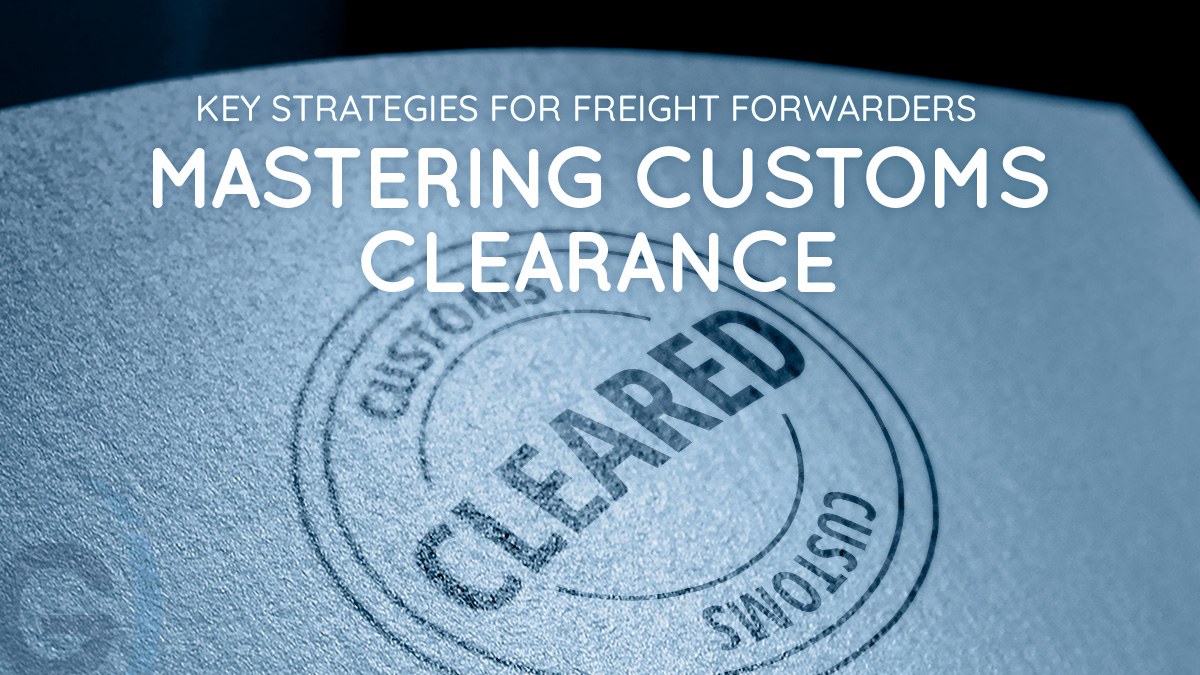Customs clearance involves the preparation and submission of documents, as well as the payment of taxes and duties, to facilitate the import or export of goods. For freight forwarding companies, efficient customs clearance is vital to avoid delays, minimize storage costs, and maintain a competitive edge.
Antonio Torres, President of Globalia Logistics Network, who has over 10 years of experience in the freight forwarding industry, highlights its significance, “Customs clearance is the gateway to international trade. Independent freight forwarders who can efficiently navigate this process can not only ensure timely deliveries but also minimize costs for their clients.”

With the increasing complexity of trade regulations and the introduction of new compliance rules, small and mid-sized freight forwarders must be well-versed in the latest customs requirements to maintain smooth operations. This not only includes understanding the regulations but also being able to quickly resolve issues that might arise during clearance.
How to Expedite the Customs Clearance Process
Several strategies can help freight forwarding companies expedite customs clearance and ensure a smooth process:
-
Accurate Documentation
The most common cause of delays in customs clearance is incomplete or inaccurate documentation. Freight forwarders should ensure all necessary documents, such as commercial invoices, packing lists, certificates of origin, and bills of lading, are prepared correctly before submission. Torres emphasizes, “A single error in the paperwork can lead to delays that could cost businesses thousands. In other words, ensuring that documentation is flawless is the first step toward an expedited customs process.”
-
Electronic Submission
Many customs authorities have adopted electronic data interchange (EDI) systems to allow for faster clearance processing. Freight forwarders should take advantage of these systems to submit documents electronically, reducing the time spent on manual processing and minimizing the chance of human error.
-
Pre-Clearance Programs
Freight forwarders can participate in various pre-clearance programs like the Authorized Economic Operator (AEO) or Customs-Trade Partnership Against Terrorism (C-TPAT). These programs, which involve a higher level of compliance and security checks, can provide faster customs processing and lower the risk of inspections. According to Torres, “Freight forwarders who engage in pre-clearance programs can offer their clients a significant advantage by reducing potential bottlenecks at borders.”
-
Maintain Strong Relationships with Customs Officials
Having good working relationships with customs officials can make the process smoother and quicker. Frequent communication and understanding their requirements can help avoid misunderstandings and streamline the customs clearance process.
-
Use Customs Brokers
Collaborating with experienced customs brokers can greatly enhance the efficiency of customs clearance. Brokers are well-versed in local regulations, tariff classifications, and compliance issues, making them invaluable partners for ensuring a fast and hassle-free customs process.
Other Tips for Efficient Customs Clearance
- Plan Ahead: Make sure all customs documentation is completed well before the shipment arrives at its destination. This allows time to correct any issues before they become major problems.
- Keep Up-to-Date with Regulations: Trade regulations are constantly changing, so it’s crucial to stay informed about the latest rules in the countries you are dealing with.
- Invest in Technology: Leveraging digital platforms to track and manage customs documentation can reduce errors and enhance visibility across the supply chain.
Torres also points out that training staff on customs procedures is key: “Freight forwarders need to continuously educate their teams on the latest customs regulations to ensure efficiency and avoid unnecessary delays. The logistics industry thrives on speed, and knowledge is a powerful tool in staying ahead of the competition.”
Conclusion
Customs clearance is a complex yet crucial process for freight forwarders, and mastering it can lead to significant advantages. By focusing on accuracy, leveraging technology, and building strong relationships, freight forwarding companies can expedite customs clearance and enhance their overall service quality.
At Globalia Logistics Network, we believe that freight forwarders equipped with the right knowledge and tools will not only thrive but also exceed their customers’ expectations. Customs clearance is an essential part of this journey, and Globalia is committed to supporting our members in navigating these challenges.

